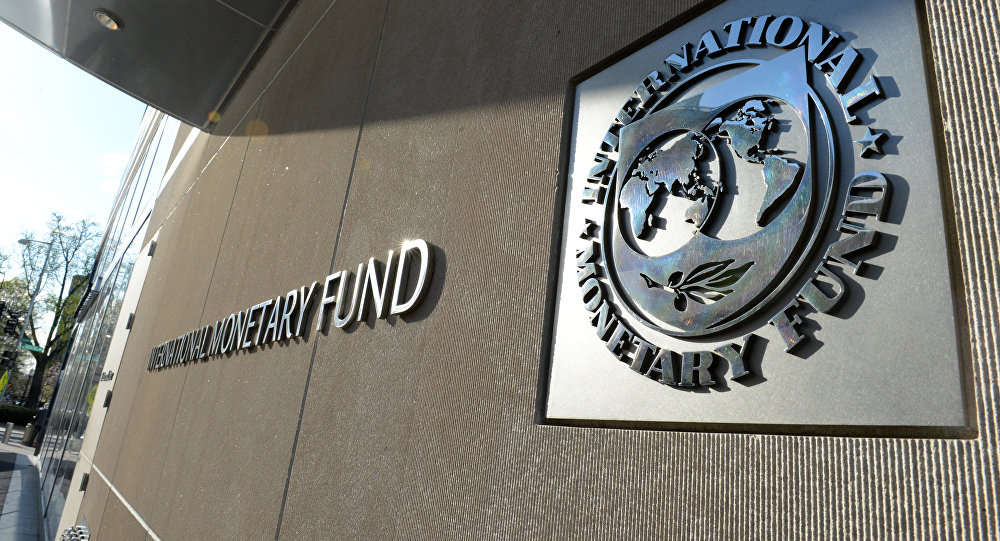World financial leaders are converging in Washington, D.C., this week for the Spring Meetings of the International Monetary Fund (IMF) and the World Bank Group—an annual event typically centered on fostering global economic cooperation, development financing, and policy coordination.
But this year, the spotlight has sharply shifted to escalating trade tensions and the sweeping impact of fresh U.S. tariffs on global commerce.
Tariff Turmoil Overshadows Multilateral Priorities
With hundreds of finance ministers, central bank governors, and policy experts in attendance, the atmosphere is charged with urgency. The reintroduction of aggressive trade measures by U.S. President Donald Trump, who returned to office in January 2025, has redefined the agenda for the semi-annual meetings. On April 2, Trump unveiled a new round of broad-based tariffs, imposing at least a 10% import duty on goods from over 50 countries, including major trading partners like China, Canada, the UK, and Nigeria. In some cases, such as imports from China, tariffs have surged as high as 125%.
These sweeping measures have rattled global markets, sparked diplomatic friction, and shifted the primary focus of the meetings from traditional issues like climate finance and debt relief to urgent bilateral negotiations. According to international observers, this marks one of the most geopolitically tense Spring Meetings in recent memory.
Widespread Economic Uncertainty
The consequences of these tariffs are already reverberating across global financial systems. The IMF is expected to revise its global economic forecast downward, as confidence wavers and volatility escalates. Though IMF Managing Director Kristalina Georgieva reassured the public that a global recession isn’t imminent, she warned of significant slowdowns in trade-dependent economies, particularly those in the Global South.
Meanwhile, investment flows have grown increasingly cautious. Concerns over trade fragmentation and supply chain disruptions have led to increased market uncertainty. Many countries, especially emerging economies, are now scrambling to renegotiate trade terms and secure exemptions from the U.S. tariffs.
Spotlight on the U.S. Treasury Negotiator
All eyes are on U.S. Treasury Secretary Scott Bessent, who has emerged as the key figure representing Trump’s administration in tariff-related talks. His ambiguous stance on multilateral development institutions like the IMF and World Bank is also adding to the unease. Bessent’s discussions with finance ministers from Japan, South Korea, and the European Union will be closely watched, as these countries seek to delay, mitigate, or reverse new tariff penalties.
Japan is expected to push for reductions in tariffs on its auto and steel exports, while South Korea aims to forestall the full implementation of 25% tariffs and promote cooperation in shipbuilding and energy sectors. Their success or failure in securing favorable outcomes could set the tone for the broader global response.
Multilateralism on the Back Burner
The ongoing tariff crisis has forced many countries to prioritize national economic interests over multilateral goals. As a result, topics like sovereign debt restructuring, green transition funding, and support for Ukraine are being pushed aside. Although these issues remain on the formal agenda, they’re receiving far less attention amid the urgency to shield economies from trade fallout.
World Bank President Ajay Banga is expected to present the bank’s revised strategic direction, which now includes a stronger emphasis on financing energy infrastructure such as gas and nuclear projects—areas that align more closely with Trump’s economic and geopolitical stance. However, there are growing concerns about whether the U.S. will fulfill the $4 billion commitment previously made under the Biden administration.
Shifting Global Alliances and Dollar Concerns
The broader geopolitical implications of America’s inward trade turn are also weighing heavily on the meetings. Critics warn that the Trump administration’s move away from multilateral cooperation could leave a power vacuum—one that rivals like China and Russia could exploit. Some fear that sustained tariff confrontations may accelerate a global decoupling from U.S. financial leadership.
Adding to those concerns is the recent dip in demand for U.S. Treasury securities. Investors are beginning to question the dollar’s resilience as the world’s reserve currency, especially in light of Trump’s unpredictable trade actions and reports of increasing debt sell-offs by major foreign holders.
What Lies Ahead
While some policymakers hold out hope for negotiated tariff exemptions or temporary pauses, the overall sentiment remains one of caution. The Spring Meetings, originally intended to focus on global recovery, inflation control, and climate resilience, have now become a forum for crisis management.
For developing nations like Nigeria, the impact of these tariffs could be particularly severe. Increased import costs, limited export access, and diminished investor confidence all threaten to undermine recovery efforts just as many economies begin to stabilize after previous global shocks.
This year’s IMF and World Bank Spring Meetings underscore a pivotal shift in the global financial landscape. As trade tensions dominate the agenda, the future of multilateral cooperation hangs in the balance. Whether finance leaders can navigate this new era of economic nationalism without fracturing global trade systems remains to be seen—but the outcome of this week’s negotiations will undoubtedly shape the path forward for years to come.



